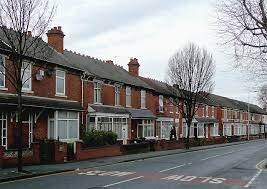Latest market report by Rightmove Plc, a UK-based real estate company, indicated that the national average price of properties coming to market in the UK has hit an all-time high as fierce competition among buyers for the record low number of available properties for sale continues.
A news report by yahoo.com stated that the firm’s latest house price index indicated that average price rose by 0.3%, or £1,091, this month, to hit £338,462, representing only £15 higher than the record set in July and indicative of signs that prices are now stabilizing.
Commenting on the market trend and the report findings, managing director of Barrows and Forrester, James Forrester, said: “It’s to be expected that the astronomic rates of house price growth seen since the introduction of the stamp duty holiday will now start to subside as we approach the final deadline.
“But don’t be fooled into thinking the market will now deflate like a cheap birthday balloon. Buyer demand is extremely high and property prices will remain robust, largely driven by second and third rung buyers upgrading to larger, higher-value homes”, the industry expert added.
In his remarks, Rightmove’s director of property data, Tim Bannister, stated: “Competition among potential buyers to secure their next home is now more than double what it was this time in 2019.
“To be in pole-position in the race for the best property you need to have greater buying power than the rest of the field.
“That traditionally would mean deeper pockets to outbid other buyers, but in the most competitive market ever, today’s ‘power buyers’ also need to have already found a buyer for their own property, or to have no need to sell at all”, Bannister added.
He further clarified that “proof that you are mortgage-ready or can splash the cash without needing a mortgage will also help you to get the pick of the housing crop.”
The report stated, however, that the observed competition from properties was counterbalanced by increasingly stretched buyer affordability, disappearing stamp duty incentives and the summer holiday mini-lull, alongside sluggish price growth in London.






